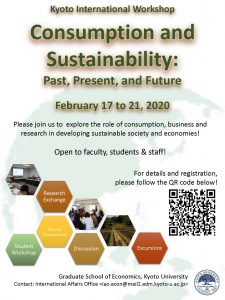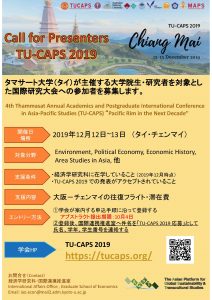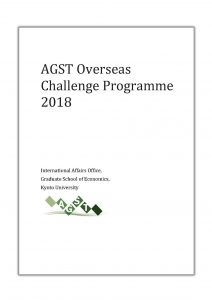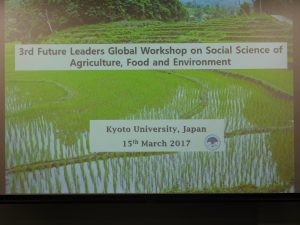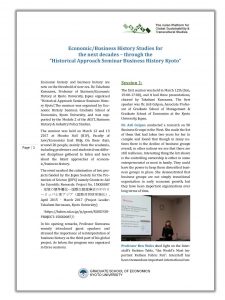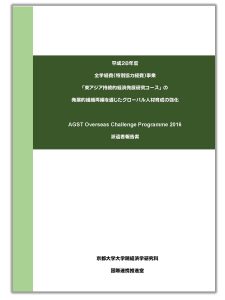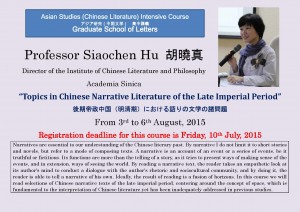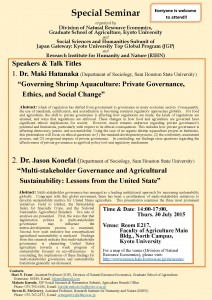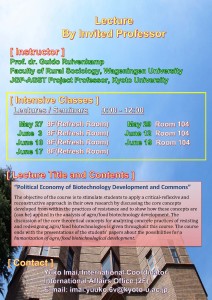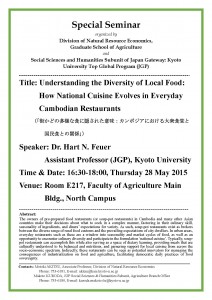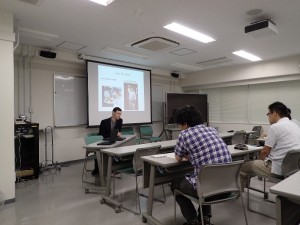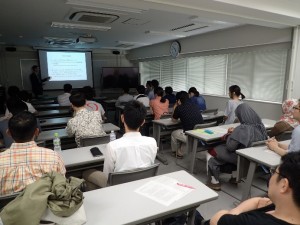Virtual International Graduate Student Workshop
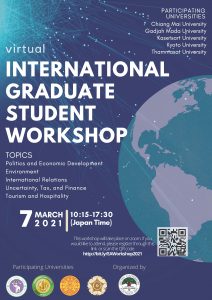
The Graduate School of Economics hosts the “International Graduate Student Workshop”
[Date]
March 7, 2021
10:15-17:30
[Venue]
Online (zoom)
[Schedule]
Click here to see the programme
[Event report]
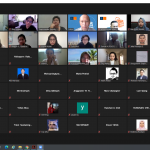
On March 7, 2021, Kyoto University hosted an online one-day workshop for graduate students to present their research projects, learn from their peers’ research activities, and network. Participants were from Chiang Mai University (Faculty of Economics), Kasetsart University (Faculty of Economics), Thammasat University (Faculty of Political Science, and Thammasat Institute of Area Studies), Gadjah Mada University (Faculty of Economics and Business), and Kyoto University (Graduate School of Economics). Presentations were divided into eight sessions and covered five broad themes: (1) politics and economic development, (2) environment, (3) international relations, (4) uncertainty, tax, and finance, and (5) tourism and hospitality. A total of 33 students presented their current research projects and proposals for their master’s thesis or doctoral dissertations. Students from Kyoto University’s International Graduate Programme for East Asia Sustainable Economic Development Studies undertook several organizational activities such as overseeing the secretariat, preparing the proceedings, and creating and distributing the event poster.
Several faculty members from each participating university also attended the workshop and actively participated in the discussions. Prof. Shuji Hisano (Director of the International Graduate Programme for East Asia Sustainable Economic Development Studies and the Asian Platform for Global Sustainability and Transcultural Studies at Kyoto University) kicked-off the workshop by welcoming the participants. He was pleased to announce how Kyoto University and its partner universities in Indonesia and Thailand could continue to collaborate despite restrictions to in-person meetings. The workshop was a great opportunity to “keep ties.”
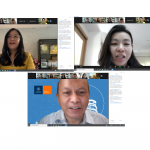
In their closing remarks, Prof. Vijitsri Sanguanwongse (Dean of the Faculty of Economics, Kasetsart University), Prof. Juthathip Jongwanich (Faculty of Economics, Thammasat University), and Prof. Mamduh M. Hanafi (Director of the Doctoral Programme in Management, Faculty of Economics and Business, Universitas Gadjah Mada) all reiterated their wish for continued collaboration between universities. They thanked Kyoto University for the initiative because the workshop gave students an experience presenting in an international setting and allowed them to build their networks. Finally, all speakers wished to meet each other in person again soon.
At the end of the workshop, participants filled out a short evaluation form. The following describes some of the key highlights from the post-workshop evaluation. Presenters noted how they received constructive feedback and practical advice from their peers and attending faculty members about how to improve their work. Others said that they got new research ideas and learned about new research methods. Participants also praised the effective time management and welcoming atmosphere of the workshop. They noted that the relaxed atmosphere facilitated open discussions and frank exchanges.
“The workshop was a good place for graduate students to present their work freely and practicing discussions with peers,” commented one of the presenters.
Overall, it seemed that most enjoyed exchanging with fellow students from East Asian universities and working on topics related to East Asia and that many were pleased that they could participate even if it was online. Despite the diversity of topics and approaches, they share the same regional concerns that made the exchanges more fruitful.
Even the Kyoto University students who were involved in the workshop organization found that their participation was rewarding.
“I found it very meaningful to join the organization team of this workshop. This experience will be useful for my career,” wrote a student-member of the organizing committee.
Considering these comments, the workshop seems to have met its objectives. As for ways for improvement, participants noted that the discussion time could be extended. Others wished that future workshops be organized on a weekday rather than on Sunday. These comments will undoubtedly be taken into consideration in the future.
Kyoto International Workshop “Consumption and Sustainability: Past, Present, and Future”
The Graduate School of Economics is holding Kyoto International
Workshop “Consumption and Sustainability: Past, Present, and Future”
from February 17 to 21, 2020.
Please refer to the following link for the details
(some sessions are open to students).
http://www.econ.kyoto-u.ac.jp/kueac/courses/course-events-and-activities/kiw/
[Contact]
International Affairs Office, Graduate School of Economics
iao.econ[at]mail2.adm.kyoto-u.ac.jp
(please replace [at] with @)
Thammasat Annual Academics and Postgraduate International Conference (TU-CAPS 2019) (Abstract submission by 4th Oct.)
The Graduate School of Economics (GSE) is looking for participants of international conference TU-CUPS 2019 “Pacific Rim in the Next Decade” in the international conference held in Chiang Mai, Thailand.
【Date】
12th – 13th December, 2019
【How to entry】
① Register for the conference.
(Abstract submission by 4th October)
② Contact with the International Affairs Office and inform your name, grade and student ID, which is entitled “Registration of TU-CAPS 2019”.
For more details, please see following website.
https://tucaps.org/
【Report】updated on 15th January 2020
The report form the student who has attended the TU-CAPS2019“ Pacific Rim in the Next Decade”.
http://www.econ.kyoto-u.ac.jp/en/news/26900/
【Contact】
International Affairs Office
Graduate School of Economics, Kyoto University
iao.econ [at] mail2.adm.kyoto-u.ac.jp
(please replace [at] with @)
GLOCAL Summer School—“Tastes of the Global City”
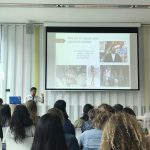
Four graduate students from the Graduate School of Economics (GSE) attended the GLOCAL Summer School from August 25th to 29th, 2019. “GLOCAL” is a two-year international master’s programme, offered by four leading universities, Glasgow, Barcelona, Rotterdam, and Göttingen (Kyoto University has joined the programme as an official consortium member in 2019). GLOCAL offers a week-long summer school every year, and it was held in Rotterdam, Netherlands this year, under the theme of “Tastes of the Global City.” Each day focused on a different theme: art (Day 1); food (Day 2); fashion (Day 3); and music (Day 4). Fifty students in the GLOCAL programme and from Kyoto attended the summer school, exploring questions of how sustainable urban planning initiatives and policies are and how they can contribute to a more sustainable future. Three faculty from the GSE attended the summer school as lecturers.
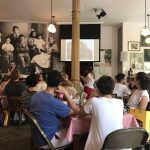
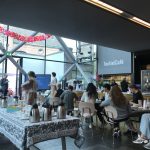
Each morning, students attended presentations by scholars from around the world, including the Netherlands, Britain, Italy, Germany, and Japan. Discussion themes ranged from the global art market to global food identity and sustainability, global fashion heritage, and the globalization of the music industry. Combined with classroom lectures, students enjoyed hands-on learning experience, including panel discussion, city tours, and museum visit. On the second day, for example, professors from the University of York, Kyoto University, and Göttingen University gave lectures on the global food market, the politics of sustainability, and humanitarian food aid during the post-WWII period from the perspectives of history and political economy. With much deeper understanding of the complexity of what we eat, students went on to explore the local food industry—the Dutch alcoholic beverages industry. One group visited Heineken; and another joined the Jenever (Dutch gin) tour. The day concluded with a delicious and intellectually stimulating dinner at a historic site turned into a restaurant, Verhalenhuis Belvédère, where we learned a history of a Chinese immigrant family who lived in the neighborhood and the dynamic population in Rotterdam. Throughout the Summer School, students gained in-depth knowledge and understanding about cultural heritages, political implications of culture, and the impact of urban policies at a local, national and supranational level.
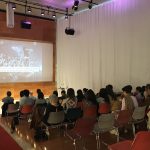
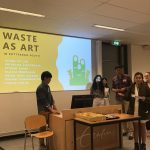
This intensive learning opportunity helped facilitate active participation, mutual learning, and critical thinking. Many students, including the students from Kyoto, noted that this was an excellent opportunity for them to learn new things and meet students from different parts of the world. Their social, cultural, and professional backgrounds were diverse; and their opinions were different. Despite, or because of, the differences among participants, the Summer School offered students, as well as faculty, an invaluable experience that have broadened their understanding of art, food, fashion, and music from political, economic, social, and cultural aspects in a global context.
Senior Lecturer, Graduate Schools of Economics
The 5th KU-WU International Graduate Workshop on Food and Development Studies
Kyoto University graduate students present at an international workshop at Wageningen University, the Netherlands
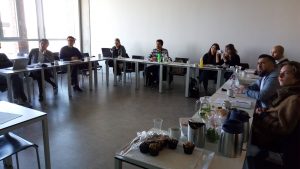
On May 13, 2019, Kyoto University (KU) graduate students participated in the fifth International Graduate Workshop on Food and Development Studies that took place at Wageningen University (WUR). This was an opportunity for KU and WUR graduate students to present their research and get an international perspective on their work through discussion sessions that followed each presentation.
Nine students (five from KU and four from WUR) presented on topics that touched on various themes, such as rural development, agri-food governance, food security, and food sovereignty. Compared to the 2018 workshop, the number of presentations slightly decreased; however, this allowed for more in-depth discussions and exchange, which was not possible with last year’s tighter schedule.
“It was a good opportunity to present my thesis research as practice but also to train myself in better clarifying and identifying the main points that I should be focusing on when writing up my thesis,” commented one KU student.
Considering this and other positive feedback received, perhaps keeping presentation numbers lower in order to have in-depth discussions is something to continue for future workshops, especially considering that the topics are diverse and that each student has a different point in his/her research project. In other words, the audience needs more time to get acquainted with the student’s research in order to give more appropriate and relevant feedback. One way to further deepen the discussion would be to ask students to submit an extended abstract or a working paper prior to the workshop so that workshop participants can be more prepared to engage.
One thing that was introduced last year and continued to be done this year was asking the presenters to explain to the audience what they would like feedback on. This seemed to work well as the students could get specific advice during and after the workshop. For example, students participating in the Top Global Course presented their research progress in front of their international thesis co-supervisors who gave them thorough feedback in a one-on-one session later on. A student noted that his supervisor took great interest in his research, gave helpful and valuable advice and suggested some key readings.
Overall, it seems that students found the workshop a worthwhile experience that allowed them to identify how they can improve their research while building their presentation and other communication skills.
Conference and field trips
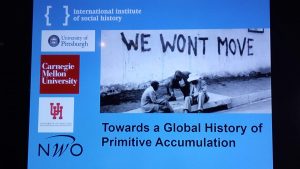
Other than the workshop, KU students could also learn more about international and local issues related to rural and agrarian development. For example, before the workshop in Wageningen, students visited the Transnational Institute (TNI), an international research and advocacy institute based in Amsterdam, where they could ask questions about scholar-activism.
Students also had the chance to attend the “Towards a Global History of Primitive Accumulation” conference that was held at the International Institute of Social History. For most of the students, it was the first time to attend an international conference. They could interact with internationally recognized scholars from all over the world. They could observe how arguments were presented and debates carried out. A student commented that she was surprised by the professionalism and mutual-respect shown by participants despite having different perspectives and opinions.
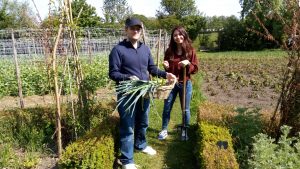
Lastly, students could visit a community-supported agriculture farm to get a first-hand experience of the philosophy, the practice, the potentials of organic farming but also the issues and challenges faced by organic farmers in the Netherlands. One student commented that after meeting farmers face-to-face, she felt more motivated about her own research.
While it was an intense nine-day trip, it seems that the workshop and field trips were fruitful based on student feedback that indicated how they found it an eye-opening and skill-building experience. These new and fresh insights will hopefully infuse their work and lead to interesting and creative research results.
AGST Overseas Challenge Programme: Report from 2018 Participants
This document compiles the reports submitted by the students who participated in the AGST Overseas Challenge Programme in 2018.
This grant programme is an opportunity for the Graduate School of Economics’ students to advance their research projects by performing a wide range of activities based on their particular research topic. Students conducting theoretical research benefited from academic guidance from scholars and other subject-matter experts, and students doing empirical research were able to collect data through interviews, observation and archival research.
Eight students received the grant, one from the regular programme and seven from the international programme. They stayed in five different countries, including China, Denmark, Indonesia, the Netherlands and the United Kingdom, and the length of their stay varied between 13 and 62 days.
Student feedback has been positive. To quote a student, “the programme provided valuable information for my study. Not only I had the opportunity to gather data from the direct observation of a process but also I was able to communicate with the officers. This unique experience provided me with a deeper understanding of the industry that I am studying.”
The 4th KU-WU International Graduate Workshop on Food, Farm and Rural Development
Overview
-300x208.jpg)
From May 7 to 11, 2018, Kyoto University hosted the Fourth International Graduate Workshop on Food, Farm and Rural Development. The workshop was organized by Kyoto University’s (KU) Graduate School of Economics and the Asian Platform for Global Sustainability & Transcultural Studies (AGST), and Wageningen University’s (WU) Rural Sociology Group from the Netherlands. The objective of the workshop was to facilitate exchange between students and faculty, and to challenge students to further develop their research. The following describes some key highlights from the week.
Welcome message
Before the student presentations began, Professor Shuji Hisano (from KU’s Graduate School of Economics, and Director of AGST) and Professor Joost Jongerden (from WU’s Rural Sociology Group and a project professor of AGST) kicked-off the workshop by welcoming all the participants. Professor Hisano was pleased to announce the continued collaboration between the Asian Platform for Global Sustainability & Transcultural Studies (AGST) and WU’s Rural Sociology group in terms of education and exchange, noting the interesting ways these two groups have come together to work on key agri-food issues using critical theoretical and analytical frameworks. He spoke of building upon the ongoing informal supervision with Master’s students and to also establish a joint PhD supervision programme.
Following Professor Hisano’s remarks, Professor Jongerden, commented on how he was looking forward to a fruitful exchange given the diversity of research topics and locations (nine countries: including Chile, China, Germany, Indonesia, Japan, Nicaragua, Philippines, UK, and USA) and the different nationalities represented by students and faculty (ten countries: Brazil, China, Chile, Germany, Holland, Indonesia, Italy, Japan, Madagascar, and USA). In closing, he spoke of how he hoped that all participants would use this workshop as an opportunity to further their research.
Student workshops
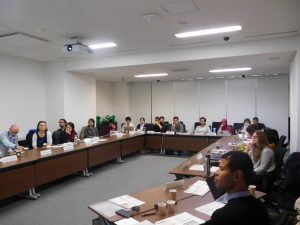
Students presentations lasted two days (May 8 and 9) and were divided into 4 panels and 3 themes: (1) Practices and Processes of Multifunctional Agriculture and Rural Development, (2) Political Economy of Agri-food Technologies and Sustainable Development, and (3) Political Economy of Agri-food Technologies and Sustainable Development. A total of 14 graduate students (six from WU, two from KU’s Graduate School of Agriculture and six from KU’s Graduate School of Economics) presented their research projects and proposals for their Master’s thesis or PhD dissertations. A common theme raised by each presenter was the importance of focusing on rural places, especially in the context of sustainable development.
Overall, student presenters came away with many lessons. Most found it to be a worthwhile exercise to improve their work and to prepare for future presentations, such as their final defence. Many received constructive feedback and received tangible advice from their more-experienced peers and attending scholars about how to improve their work, such as ways to make arguments more compelling and identify blind spots in their analysis. The lively discussions did not end during the Q&A sessions… many were happy to continue to exchange during social outings together.
Special sessions
The workshops closed with two presentations by experts working on agri-food issues in Japan. First, Professor Hisano presented what has been happening in relation to Japan’s experiences of re-agrarianisation and re-peasantisation and the ways that two conceptual frameworks: ”re-de-agrarianisation” and “re-de-peasantisation”, capture or fail to explain agrarian and rural dynamics in Japanese agriculture.
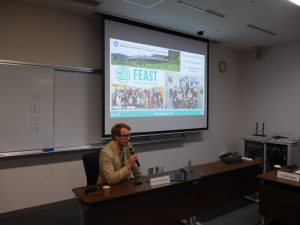
Next, Dr. Steven McGreevy, associate professor at the Research Institute for Humanity and Nature (RIHN) spoke about the FEAST Project, a five-year interdisciplinary research project that he leads at RIHN. Research is mainly conducted on the environment aspect of agri-food issues in various countries, namely Japan, Thailand, China and Bhutan. Research is conducted by in-house researchers and more than 100 affiliated members. Dr. McGreevy presented some research findings on topics such as ecological footprint of food consumption, food system mapping, urban agricultural land loss in Kyoto, etc.
Field trips
For the last two days of the meeting, participants could learn first-hand about local agri-food issues, the different types of farming entities and the challenges they face during four site visits, including: (1) a vegetable-distributor dealing mainly with new entry farmers (called Saka no Tochu Co., Ltd.), (2) a famers’ market (called Tawawa Asagiri) operated by an agricultural cooperative association in Kyoto, (3) an automated vegetable factory (called Spread Co.), and (4) a young organic farmer located in Kameoka city (2009 graduate of KU’s Faculty of Economics). Finally, participants attended a seminar on food sovereignty at RIHN, where they could meet and talk with one of the core members of an alternative distribution system of organic vegetables (called Kyoto Organic Action). The field trips were well-received by the participants who were grateful that they could see and hear about actual opportunities, pressures and dilemmas that individual farmers and distributors, as well as corporations in Japan currently face.
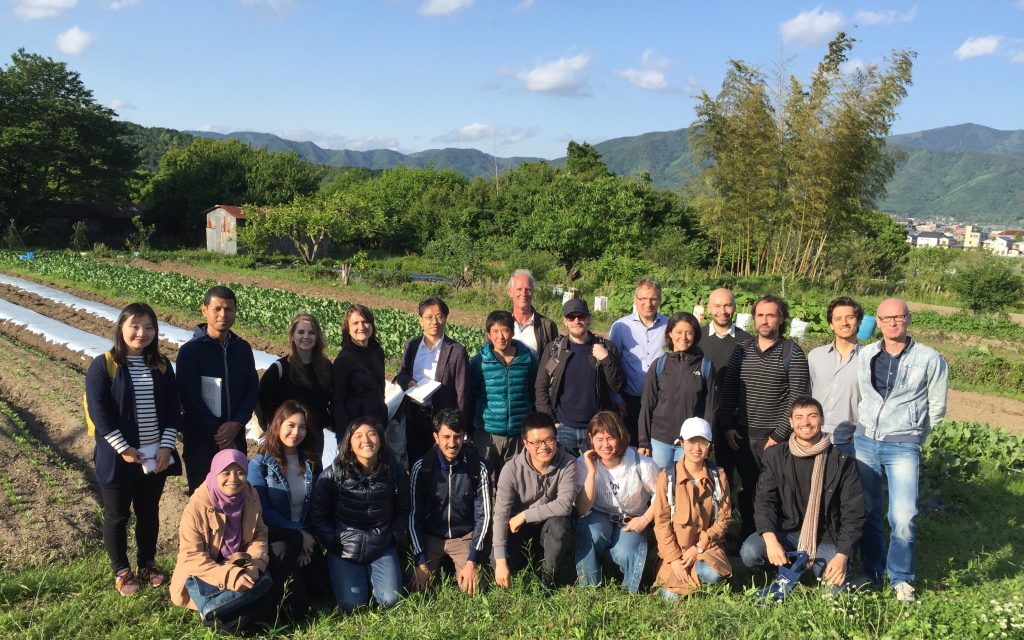
AGST Overseas Challenge Programme: Reports from 2017 Participants
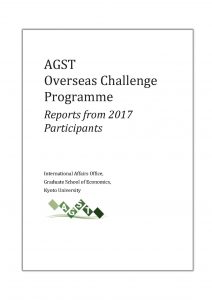 This document compiles the reports submitted by the students who participated in the AGST Overseas Challenge Programme in 2017.
This document compiles the reports submitted by the students who participated in the AGST Overseas Challenge Programme in 2017.
This programme is an opportunity for graduate students to advance their research projects by performing a wide range of activities based on their particular field and research method over a period of approximately one month in a different country. Once the students return back to Kyoto, they sort out and analyse all the information gathered during their stay and are then expected to use this information to present their results at international conferences and to submit a paper to academic journals. Participating in this programme can help students prepare for a career in academia or various professions in an international setting.
In 2017, eleven students participated in the programme, stayed in eight different countries, and the length of their stay varied between 10 and 90 days. Activities undertaken included receiving academic guidance for doctoral dissertations from the partner universities’ faculty; collecting research materials from specialized institutions and libraries; interviewing officials from government agencies, businesses and NGOs; and participating in field research.
AGST Overseas Challenge Programme: Report from 2017 Participants
Field Trip to Nagoya: What cars and cloth have in common (2017.6.20)
What cars and cloth have in common
For the course ‘Field Research in Japan B’ a group of students from Kyoto University together with visiting students from Glasgow University travelled to the Toyota Commemorative Museum of Industry and Technology in Nagoya. When thinking of Toyota, one immediately thinks of the numerous cars Toyota creates and which are a very common sight on the streets around the world. However, when we entered the museum, we didn’t see the expected cars, but a huge circular loom.
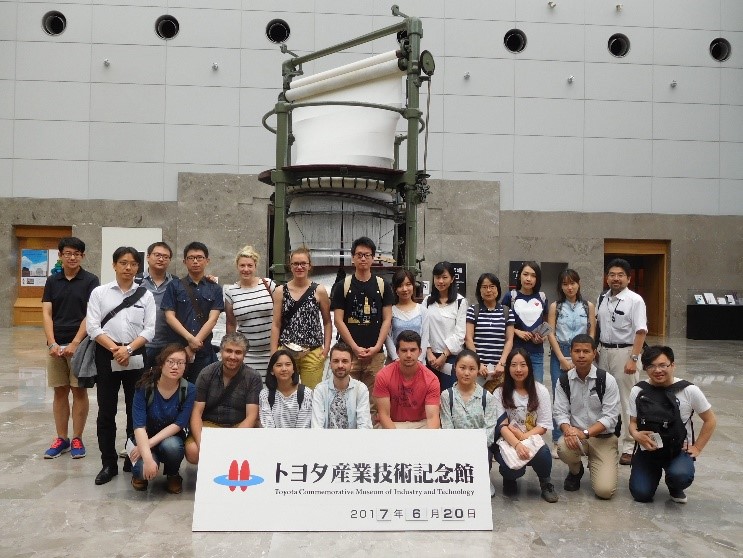
Participants in front of the circular loom
So what is this loom doing in the museum of a large automobile company? This museum tells the story of how Toyota evolved from a maker of looms and other textile machinery to the car manufacturer it is today. Professor Kurosawa told us this transition wasn’t a coincidence. He shared his knowledge of the history of textile-machine companies, of which Toyota was one, and explained to us how development in the one sector led to an expanding skill set that could be transferred to another sector.
One thing professor Kurosawa pointed out to us was the saying of Friedrich List, who claimed that ‘cotton is the industry that makes factories’. This statement encapsulates how developments from the cotton industry could serve as an incubator for the nurturing of skills and knowledge that are required in other industries. For the production of cotton-textiles machinery, like looms and spinners, factories were necessary and to make the process more efficient all kinds of techniques were developed whose principles could also be applied to other industries. The museum showed the gradual development from the traditional spinning and weaving of cotton to the high speed machines used today.

The second stop of the field trip was at the beautiful Noritake garden where ceramics are exhibited, iconic industrial buildings are preserved and the history of the company is explained. Here, we saw the same pattern as with Toyota: technical improvements in one sector lead to improvements in another. Beautiful ceramics were displayed in the museum, where we could see people hand painting the pieces of art. However, we found ceramics had a use far beyond decoration or practical use at the dinner table. The techniques that Noritake developed are applied in other industries as well. One example for this is the grinding wheel that was designed for delicate porcelain, but has found a new destiny as an industrial grinding wheel. Other techniques developed by Noritake have been applied in the automobile, energy and medical industries.
Iconic buildings of Noritake
For the visiting students from Glasgow, the Noritake Garden offered a great opportunity to observe characteristic architecture of Japan’s industrialization era, fine ceramics and the art of Japanese gardens. By visiting these places, they could get a global idea of how Japanese industrialization compares to industrialization in Scotland.
In the end, by examining the history of a companies like Toyota and Noritake, we learned how they evolved over time and became the famous companies they are today. Their histories also serve as great illustrations of how industries are connected to each other by shared techniques and knowledge. And now we know that had it not been for the people endeavoring to make cotton cloth most efficiently, we might not have had the Toyota cars of today.
MSC student Wageningen University
Comparative Analysis on Agricultural Holdings/ Family Farming – 3rd International Workshop on Study of Family-run Farming
As part of the promotion of the international programme of Kyoto University JGP AGST, the Graduate School of Agriculture, through its Division of Natural Resource Economics, held on March 15-16th, the 3rd International Workshop on Study of Family-run Farming entitled “Comparative Analysis on Agricultural Holdings/ Family Farming”. This initiative was a result of the cooperation between Kyoto University, Agropolis International (France) and the University of Göttingen (Germany).
The programme included two sessions:
Firstly, the 3rd Future Leaders Global Workshop on Social Science of Agriculture, Food and Environment.
This first session was an opportunity for the students and young researchers from the participating institutions to present the progress of their research and receive advice from the faculty members.
The second one was for faculty members to discuss contemporary issues related to agricultural holdings/family farming in China, Japan, France, Germany and regions Africa and Latin America.
This workshop was jointly organised by the Graduate School of Agriculture via Division of Natural Resource Economics, the Asian Platform for Global Sustainability and Transcultural Studies (AGST), Agropolis International and the Department of Agricultural Economics and Rural Development, University of Göttingen.
Other associated institutions included: The Norinchukin Bank Innovative Research for Farm Governance and Management (Endowed Chair) and the JSPS Grant-in-Aid for Scientific Research (A): Development of Risk Communication Model and Requirements for Profession for Food Safety.
Comparative Analysis on Agricultural Holdings/ Family Farming – 3rd International Workshop on Study of Family-run Farming
17 April 2017 By Haja M. Rajaonarison, AGST Research Fellow
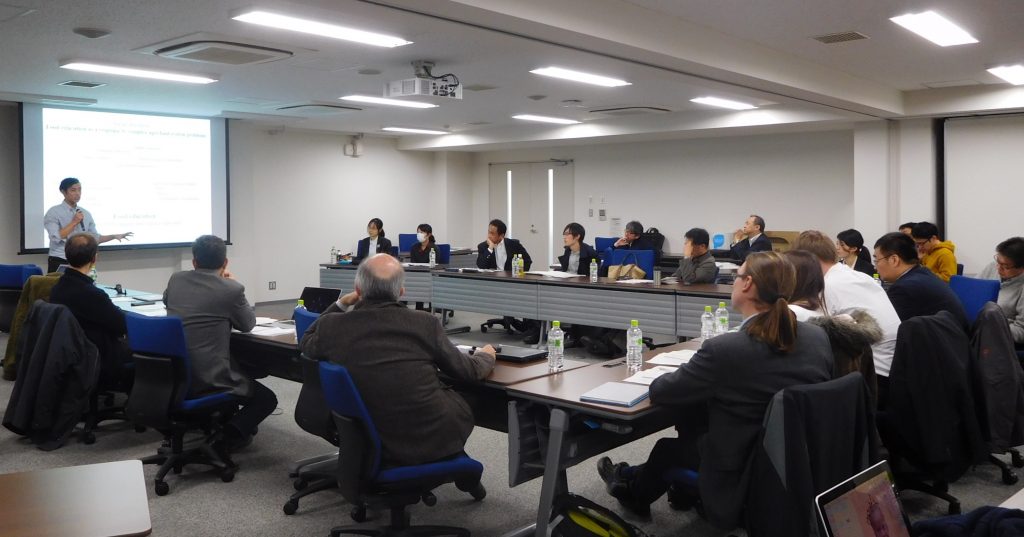
Economic/Business History Studies for the next decades – through the “Historical Approach Seminar Business History Kyoto”
Economic history and business history are now on the threshold of new era. Dr. Takafumi Kurosawa, Professor of Business/Economic History at Kyoto University, Japan organized “Historical Approach Seminar Business History Kyoto”.The seminar was organized by Economic History Seminar, Graduate School of Economics, Kyoto University, and was supported by the Module 2 of the AGST, Business History & Industry Policy Studies.
The seminar was held on March 12 and 13 2017 at Mizuho Hall (B1F), Faculty of Law/Economics East Bldg. On these days, around 20 people, mainly from the academia, including professors and students from different disciplines gathered to listen and learn about the latest approaches of economic/business history.
The event marked the culmination of two projects funded by the Japan Society for the Promotion of Science (JSPS) namely Grants-in-Aid for Scientific Research: Project No. 15KK0087 – 地域の競争優位―国際比較産業史の中のヨーロッパと東アジア(国際共同研究強化), April 2015 – March 2017 (Project Leader: Takafumi Kurosawa, Kyoto University)
In his opening remarks, Professor Kurosawa warmly introduced guest speakers and stressed the importance of reinterpretation of business history as the third part of his global project. As below, the program was organized in three sessions.
Session 1:
The first session was held in March 12th (Sun, 15:00-17:00), and it had three presentations, chaired by Takafumi Kurosawa. The first speaker was Dr. Asli Colpan, Associate Professor of Graduate School of Management & Graduate School of Economics at the Kyoto University, Japan. Dr. Ben Wubs, Associate Professor of Economic and Business History at Erasmus School of History, Culture and Communication, the Netherlands followed the ensuing presentation. He is Appointed Project Professor Graduate School of Economics at the Kyoto University. The last presenter of the day is Dr. Akira Tanaka, Associate Professor of Business History at Kyoto University, Japan.
Dr. Asli Colpan conducted a research on 50 Business Groups in the West. She made the list of them that had taken two years for her to compile and found that though in many nations there is the decline of business groups overall, in other nations we see that there are still resilience. Interesting thing the list shows is the controlling ownership is either in some entrepreneurial or most in family. They could have the power to keep these diversified business groups in place. She demonstrated that business groups are not simply transitional organization in early economic growth, but they have been important organizations over long terms of time.
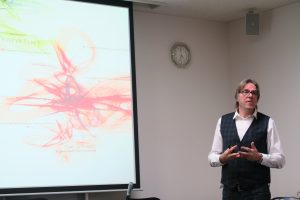 Professor Ben Wubs shed light on the Interstoff’s Fashion Table, “the World’s Most Important Fashion Fabric Fair”. Interstoff has been tremendous important international textile fair, and it was set up long before Première Vision was set up. But Interstoff lost its No.1 position in Europe because of the selective protectionist policy of Première Vision. Interstoff couldn’t follow the selective strategy because it was contradict its internationalization strategy and, at the same time, German law did not allow it.
Professor Ben Wubs shed light on the Interstoff’s Fashion Table, “the World’s Most Important Fashion Fabric Fair”. Interstoff has been tremendous important international textile fair, and it was set up long before Première Vision was set up. But Interstoff lost its No.1 position in Europe because of the selective protectionist policy of Première Vision. Interstoff couldn’t follow the selective strategy because it was contradict its internationalization strategy and, at the same time, German law did not allow it.
Professor Tanaka Akira gave a new perspective on “Mass-Procurement System of Iron Ore” by making a comparison between Vertical Integration and Relational Contracts. He provided two main reasons why Japanese long-term contract system successfully developed. Firstly, in political sense, American vertical integration system cannot get along with the nationalization in developing countries. Secondly, in economical sense, the long-term contract system provide advantage in transportation cost compared to the captive mine system. He also looked into the sub reasons: innovative production system, big suppliers for Japan that appeared in 1960s and Japan’s outstanding bargaining strategy.
Session 2:
Two scholars presented their works in the second session that was held in March 13th (Mon, 15:00-16:30). Dr. Gerarda Westerhuis chaired it. Professor Takafumi Kurosawa of Kyoto University was the first reporter. The second speaker was Dr. Christina Lubinski, Associate Professor of business history at Department of Management, Politics and Philosophy at the Copenhagen Business School, Denmark.
Professor Takafumi Kurosawa examined the relations between “Political Risks and Organizational Innovation of Multinationals”. The main message emphasizes on his presentation was that business history can focus on non-market elements, especially political risk, which had been too narrowly defined. Traditionally, business history studies focus on managerial issue or economic logic like scale and scopes, transaction cost or allocation of resources. He integrated more variety of element which are not usually explained by economic logics, such as political risks; war, dictatorship, nationalism, collapse of state.
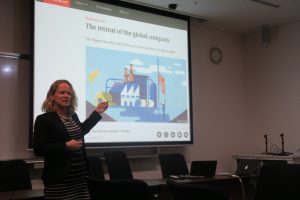 Dr. Christina Lubinski gave a new perspective on how to approach the analysis of “MNEs’ Responses to Decolonization” by looking into “The Advantage of Outsiderness”. Although current literatures exclusively see political risk as a negative factor, she stressed that there is a lot more political opportunity or opportunism that we are not really systemically including yet. She looked into German multinational companies in colonial India and advanced three main arguments in her presentation: 1) more politics become an issue, the more the organizational stricture of the company reflects that, 2) political positioning for these companies was never bilateral thing, but really a multilateral world view perspective, and 3) many of the political advantages are actually relative political advantages.
Dr. Christina Lubinski gave a new perspective on how to approach the analysis of “MNEs’ Responses to Decolonization” by looking into “The Advantage of Outsiderness”. Although current literatures exclusively see political risk as a negative factor, she stressed that there is a lot more political opportunity or opportunism that we are not really systemically including yet. She looked into German multinational companies in colonial India and advanced three main arguments in her presentation: 1) more politics become an issue, the more the organizational stricture of the company reflects that, 2) political positioning for these companies was never bilateral thing, but really a multilateral world view perspective, and 3) many of the political advantages are actually relative political advantages.
Session 3:
The last session was held on the same day (16:50-17:50) and it had three presentations. It was chaired by Dr. Daniel Wadhwani. Dr. Junko Watanabe, Professor of Economic History at Kyoto University, Japan was the first speaker. The following reporter was Dr. Grerarda Westerhuis, assistant professor at the Department of History and Art History, Utrecht University. And final speaker was Dr. Daniel Wadhwani, Associate Professor of Management and Fletcher Jones Chair in Entrepreneurship at University of the Pacific. He also holds appointments as a visiting professor in the Department of Management, Politics, and Philosophy at Copenhagen Business School and the Department of Economics at Kyoto University.
Dr. Junko Watanabe outlined different possible ways that could be applied to interpret “Trade and Investment between Japan and China”. She focused on FDI to see the industrial adjustment. When industry faces its decline process, most companies of the industry need to change management of resources. She argued that FDI is one of the solutions of industrial adjustment. The data used in the research are 1995-2015 and 2016 Edition of Toyo Keizai’s database “Kaigai Shinshutu Kigyo Soran, Kunibetsu-hen” {Overview of Companies Operating Overseas, sorted by Country}. The first part of the presentation was the overview of all provinces of China, and the second one is the case study of Guangdong province in south China. The data shows there is a wide variety of company in different industry, such as textile, retail, chemicals and so on. Her project is on going and intended to see the exit stage, in another word, duration of operation of those Japanese companies and see the existing network among Japanese companies each other.
Dr. Grerarda Westerhuis examined the relations between “Company Law Reforms and Institutional Change”. There is a long-running discussion if the national systems converge or diverge. For example nowadays we focus on shareholder value, it seems to be more convergence towards the liberal market economy. However, in her paper, it’s more interesting to know how the system changed by looking at company law reform. She concluded that the company law was not the heart of the corporate governance changes and found that though Netherland is often positioned as a civil law country, it also have aspects of common law countries.
Dr. Daniel Wadhwani looked into the Divergent Competitiveness of the Savings Bank Sector in the U.S. and Germany during the period 1880-1930. He argued that when we see the divergence between Germany and United States, we have to understand the mentality of the managers of the late 19 century and early 20 century and understand how they interpreted their own past and its imprecations for the strategy of the company by looking at sense making not as a psychologist or not as a learning theorist mind, but as historians. For example, historian should see the interpretation at that time of whether or not strategy should be about continuity or about change in order to get short-term competitive advantage. He concluded that 1) the reason why the theory of competitive advantage for firm changes over time in part is because the boundaries of what is considered the firm change over time, and 2) managers not only reacting to changes in the contexts but creating contexts over time.
The fields of Economic/Business history nowadays have encountered new challenges. This seminar provided the opportunity to share latest perspectives of the fields not only for scholars of different universities but also for the students in Kyoto University.

10 April 2017 by Hideaki Sato, Ph.D Student, Graduate School of Economics, Kyoto University / Research Fellowship for Young Scientists, Japan Society for the Promotion of Science
AGST Overseas Challenge Programme: Reports from 2016 Participants
This document compiles the reports submitted by the students who participated in the AGST Overseas Challenge Programme in 2016..
This programme is an opportunity for graduate students to advance their research projects by performing a wide range of activities based on their particular field and research method over a period of approximately one month in a different country. Once the students return back to Kyoto, they sort out and analyse all the information gathered during their stay and are then expected to use this information to present their results at international conferences and to submit a paper to academic journals. Participating in this programme can help students prepare for a career in academia or various professions in an international setting.
In 2016, nine students participated in the programme, stayed in seven different countries, and the length of their stay varied between 11 and 52 days. Activities undertaken included receiving academic guidance for doctoral dissertations from the partner universities’ faculty; collecting research materials from specialized institutions and libraries; interviewing officials from government agencies, businesses and NGOs; and participating in field research.
AGST Overseas Challenge Programme: Report from 2016 Participants
Kyoto Graduate Seminar 2016 (KGS): International and Multidisciplinary dialogues
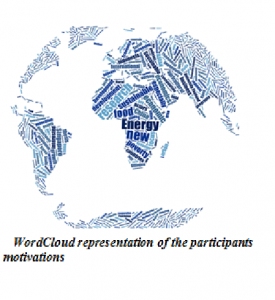 Over the last two decades, the concept of sustainable development (SD) has been widely discussed and studied within higher educational institutions. As recently as last year, the Sustainable Development Goals have been adopted by the member countries of the United Nations as the key benchmark for development framework for the next 15 years.
Over the last two decades, the concept of sustainable development (SD) has been widely discussed and studied within higher educational institutions. As recently as last year, the Sustainable Development Goals have been adopted by the member countries of the United Nations as the key benchmark for development framework for the next 15 years.
While pursuing its goals to nurture globally minded individuals with the capacity to contribute to sustainable development in Asia and throughout the world, the three departments, namely the Graduate School of Economics (GSE), Graduate School of Agriculture and Graduate School of Letters, under the aegis of the AGST project, have jointly organised a winter school with university partners in Asia and Europe.
For eight days, more than 15 nationalities hailing from different regions of the World, (Asia, Africa, Latin America, the Middle East and Europe), and from different academic backgrounds, have explored, discussed and debated over three overarching topics of SD with their counterparts at Kyoto University.
The organisational approach during the graduate seminar was divided in three parts comprising lecture series, group works and field visits to introduce various key concepts of SD. Lecture series and field visits were accompanied with some aspect of coexistence and diversity from the perspective of Japan. Activities such as the visits of a emblematic landmark like Kiomizu-dera Temple, a picturesque place representing the Japanese rurality in Ohara, and the visit to Panasonic Eco Technology Center, were part of the experience. Cultural diversity, the past and the present as well as the idea of the East and West were inspiring the multidisciplinary dialogue of the KGS 2016.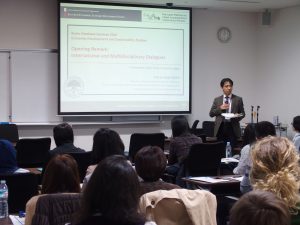
Lecture series consisted of exploring three overarching topics: agriculture and sustainable development, sustainable business and finally environmental governance. Regardless of the academic background, the design of the lectures was intended to familiarise the students to the essential concepts within the three themes mentioned earlier. Group works made it possible for all the participants to deepen their understanding of a particular issue of our modern society.
As a tradition, one session of the seminar was dedicated to young researchers who are either in an advanced stage in their PhD curriculum or recently graduated. The purpose of this session was to give useful tips on how to conduct research not only about the method, but also about the way of life as a young researcher. This was mainly intended to fill the gaps that books on research methods and methodology do not cover. Furthermore, it was an opportunity for faculty members to receive some feedback about the way to approach research supervision.
At the end of the winter school, in a warm atmosphere, the Dean of the GSE, Professor Se-il Mun, and the Director of the AGST project, Professor Shuji Hisano honoured with their presence the certificate ceremony. Dean Mun’s message emphasised on the willingness of the University to strengthen co-operation with its partners and to support efforts in this direction. In his concluding remarks, the Director of the AGST, also insisted on the importance of cultivating Multidisciplinary approach and the creation of global citizenship to approach SD problems. The impressions of the students were also very positive about the things they shared and learnt during the seminar week.
Participating Institutions (number of students):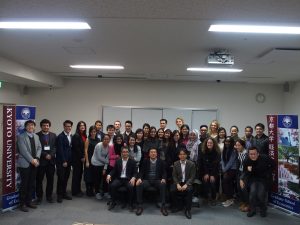
Chang Mai University, Thailand (1); Erasmus University Rotterdam, the Netherlands (1); The University of Göttingen, Germany (3); Gadjah Mada University, Indonesia (4); Kyoto University, Japan (5); Kyungpook National University, South Korea (2); Renmin University, China (2); Singapore Management University, Singapore (2); Thammasat University, Thailand (11); Wageningen University, the Netherlands (3).
Nationalities represented during the 2016 KGS
China (4); France (4); Germany (1); Indonesia (6); Iran (1); Japan (1); Kenya (1); Korea (2); Mexico (1); the Netherlands (3); Phillipines (3); Singapore (2); Thailand (6); Vietnam (2).
Seminar highlights
【Sustainable Development Studies in the Context of Socioeconomic and Political Transition in the Mekong Region】
By professor Chayan Vaddhanaphuti, Director of the Regional Centre for Social Science and Sustainable Development, Faculty of Social Sciences, Chiang Mai University, Thailand.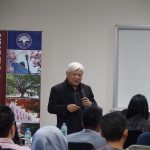
In a complex world, what matters in development studies is a critical understanding of the discipline. That is to say: demystifying important issues such as social inequality, environmental degradation, neoliberalism, etc. Furthermore, the concept of development has never been apolitical in this sense, nurturing the political of depoliticisation of development should give an insight to future research.
【Sustainable agri-food development, tackling social justice in the community】
By Professor Keiko Tanaka from the Department of Community & Leadership Development of the University of Kentucky.
Drawing from the case of the United States, professor Tanaka asked What do we want the agro-food system to be? How to create a just agro-food system? 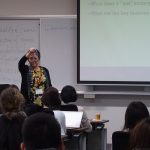
Think globally, act locally: we must be cognisant that food unites people while dividing people. We need to ask whose agro-food system we want to change: what is “good” is not necessarily what others see as “good” and “desirable”. We need to be willing to learn from people across the world, as they carry diverse ways of thinking and acting.
Embrace imperfect politics, dream big for the future: Politics is messy and time consuming. Food is an entry point to do politics because everyone can talk and care about food. Once we accept diverse economies are possible, then we can build a new, innovative process like the case of Fresh Stop Markets in Kentucky that enables us to re-imagine our agro-food system.
【Climate politics in the Philippines and Beyond】
Professor Walden Bello is currently visiting senior research scholar at the Centre for Southeast Asian Studies of Kyoto University, an associate of the Amsterdam-based Transnational Institute, and a professor at the Department of Sociology of the State University of New York at Binghamton.
Professor Bello use the case of the Philippines in the Climate negotiation share is point of view about the Climate deal agreed in Paris.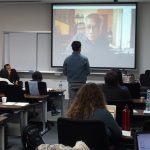
There are few that really think the Paris Climate Deal is a good deal. The question is: Is a bad deal better than no deal at all? Would it not be better to force the parties back to the negotiating table rather than have the world be subjected to the illusion that we have an agreement that addresses the Climate crisis with the seriousness it deserves?
Highlights: AGST Module 1 academic activities in 2016 May
The month of May was marked by several academic events organised by the Asian Platform of Global Sustainability and Transcultural Studies (AGST) Module 1. As part of the implementation of the Japan Gateway Programme, the AGST invited Jan Douwe van der Ploeg, Professor of Rural Sociology at Wageningen University (WU) in the Netherlands, and adjunct professor of transition studies at China Agricultural University in Beijing, to deliver an intensive course on peasant studies and agrarian transition. This intensive course was followed by the second workshop jointly organised by Kyoto University (KU) and the Rural Sociology Group of Wageningen University (RSO-WU) through the AGST partnership.
The workshop programme was divided into three parts: two days of interactive panel discussions in which the students from both universities presented their research followed by a public event jointly organised by the AGST and the Research Institute for Humanity and Nature (RIHN). Three prominent keynote speakers shared their ideas on the theme “Agroecology and peasant agriculture a promise for the future”, namely: Dr. Steven McGreevy, Associate Professor at RIHN; Miguel Altieri, Professor of Agroecology at the University of California, Berkeley; and Prof. Jan Douwe van der Ploeg. The third part of the joint workshop was dedicated to field visits in which all the participants had the chance to observe issues related to agriculture and rural development in Japan.
Intensive Course on Peasant Studies and Agrarian Change
The objective of this course was threefold. Firstly, to familiarise KU students interested in rural development, agriculture, food security, and agrarian political economy with the history and debates on peasant agriculture. The second objective was to introduce the concepts and various methodological approaches in the study and analysis of the peasantry and peasant agriculture. And finally, the course was designed to guide the students to identify ‘hot issues’ in current debates about agriculture and food, and how to relate these to the peasant question in a new era of global food insecurity.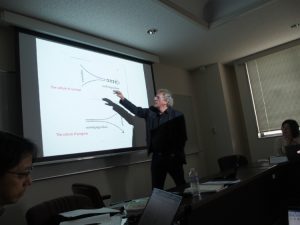
Six lectures were delivered for these purposes. In the first lecture, Prof. van der Ploeg defined what is peasant agriculture, what is peasantry, how to define peasant, and what are the differences between the capitalist or entrepreneurial agriculture and peasant agriculture. This content was drawn from his famous book “The New Peasantries: Struggles for autonomy and sustainability in an era of empire and globalisation” (2008) and his new book “Peasants and the Art of Farming: A Chayanovian manifesto” (2013). The second lecture was focused on the dynamics of peasant agriculture as well as its nexus with the capitalist society. The third lecture underlined different types of Chayanovian balances as social drivers that move peasant agriculture forward. The two ensuing lectures focused on the process of re-peasantisation, the construction of new nested markets and the underlying “struggles of the third kinds”, namely: resistance, autonomy and sustainability. Prof van der Ploeg concluded his lectures with a topic on the future of peasant studies followed by a discussion on how social sciences can help to strengthen peasant agriculture.
The Second KU-WU International Graduate Workshop on Food, Farm and Rural Development
On 23-27 of May, the AGST project hosted the second KU-WU “international workshop on food, farm and rural development”. The first part of the workshop was held at the Mizuho Hall, a conference room of the Graduate School of Economics (GSE), where the students from both universities presented their current research in an interactive panel format.
Dr. Hart Feuer, Assistant Professor of the Graduate School of Agriculture (GSA) opened the session followed by welcome addresses by Prof. Shuji Hisano and Dr. Joost Jongerden, in which they explained the milestones of the collaborations between the two universities, the purposes of the workshop, and the expected outcomes.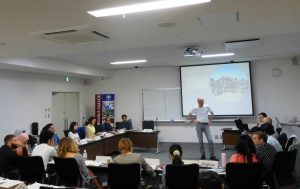
To explore this year’s topic of ‘Food, Farm and Rural Development’, the presentations were categorised according to four different sub-topics: 1) the political economy of food and rural transition; 2) Alternative Food Networks and sustainable agriculture; 3) place-based development and community livelihoods, and 4) the power of discourses and constitutional legitimacy.
The programme during the two consecutive days was as follows:
| The political Economy of food and rural transition; Chair: Dr Rajaonarison | |
|---|---|
| Herberito Ruiz Tafoya (KU-GSE, PhD Student) | Corporate Food and BoP Subsumption: A study of squatter areas in Metro-Manilla |
| Hiraga Midori (KU-GSE, PhD Student) | Transnational Policy on vegetable oil after WWII and its contributions to developing the global vegetable oil complex |
| Yang Xing (KU-GSE, PhD Student) | Capital to the countryside and financialisation of agriculture in China |
| Panel 2: Alternative Food Network and sustainable agriculture; Chair: Prof Hisano | |
|---|---|
| Leo Dvortsin (WU-RSO, PhD Candidate) | Mainstream alternative food networks: eating the way out of crisis |
| Ke Jinghan (KU-GSE, PhD Student) | Alternative food networks in China: A focus on vegetable provisioning system |
| Ryo Iwahashi (KU-GSA, PhD Student) | Consumer understandings of food information in food choice: reconnecting production and consumption |
| Panel 3: Place-based development and community livelihoods; Chair: Dr Jongerden | |
|---|---|
| Hilde Geerling (WU-SDC, PhD Candidate) | Food security, livelihoods and interventions |
| Flora Sonkin (WU-RSO, Master Student) | Geographies of connectivity: a relational perspective |
| Yuya IIDA (KU-GSA, PhD Student) | Selling our bodyweight: The Filipino migrant farm workers in Japan |
| Jordan Treakle (WU-RSO, Master Student) | Social Economy and place-based farm transition in Italy’s Garfagnana region: farm innovation, revalorisation, and specialisation towards multifunctional agriculture |
| Place 4: Power of discourse and constitution of legitimacy; Chair: Dr Ducan | |
|---|---|
| Zulfa Utami Adiputri (KU-GSE, PhD Student)) | Legitimacy of roundtable on sustainable palm oil in Melawi District |
| Anom Sygit Suryawan (KU-GSE, Master Student) | Religionisation of biotechnology: the role of halal certification and labelling schemes in maintaining bio-hegemony in Indonesia |
| Jonathan Tanis (WU-RSO, Master Student) | This Ephemeral Raft mythology and microbiopolitics of the living soil |
| Wang Yiming (KU-GSE, Research Student) | Food Security Policy of China From an international relations perspective |
In his closing address, Dr Jongerden underlined that this year’s workshop was very fruitful. He added that, although the two groups used different approaches, they both shared the same concerns regarding the theme that was explored during the two-day discussions. Furthermore, it was decided that the third KU-WU workshop will be held at Wageningen University in June/July 2017. Moreover, the AGST working paper series would be launched in the coming months to offer students and faculty members a platform to share their work before publishing them with highly ranked journals.
Agroecology and Peasant Agriculture a Promise for the Future
The second part of the workshop was devoted to a public event in which three distinguished presenters shared their ideas on the theme “Agroecology and peasant agriculture as a promise for the future”.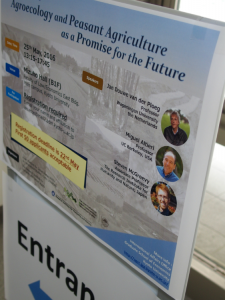
Prof. Hisano, in his opening remarks, explained the origin of the special lecture, including, the fortuitous synergy made possible by the collaboration between AGST and RIHN, who respectively invited Prof. Jan Douwe van der Ploeg and Prof. Miguel Altieri.
In order to contextualise the event, Prof. Hisano began his introductory address by highlighting growing concerns about food security in Japan. The response of the Japanese government has largely been to address these security concerns with a neoliberal policy. This is manifested, in particular, by the entry of non-agricultural private companies that have captured upstream/downstream value and connections along the food chain. In parallel, an alternative path to rural development has emerged based around the geographically-rooted conceot of “Satoyama”, which refers to the traditional multifunctional peasant landscapes of the Japanese countryside, as well as their layered social, cultural, economic and ecological functions. Despite growing concerns and pessimism over ageing and depopulation in rural villages across the country, a reverse trend is steadily emerging. Rural in-migration, new entry farmers, the use of local natural resources and cultural reservoirs, as well as the revitalisation of rural social/ecological capital are a few the many initiatives in the spirit of the “Return to Rural”, a movement which can also be characterised by the concept of agroecology and peasant agriculture.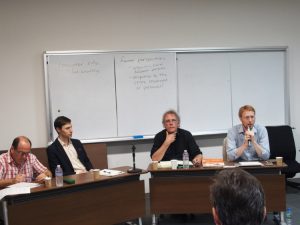
Dr. McGreevy (RIHN) catalogued the growing number and strength of alternative food movements in his presentation “Rural Sustainable Development in Japan: Will the seeds of transition take root?” Although many in the audience were aware of individual agri-food initiatives in Japan, Dr. McGreevy demonstrated how significant and viable this new movement has become.
The scope and relevance of the alternative agriculture movement at a world-wide level was further emphasised by Prof. Altieri (University of California, Berkeley) in his presentation on the “Science and Politics of Agroecology”. For him, movements such as Satoyama in Japan are a local reflection of agroecology, the worldwide effort by peasants to gain recognition for both their contribution to healthy ecosystems and achievements in producing food for much of the world. He cautioned, however, that politicians and big agricultural institutions often ignore the transformative potential of peasant agriculture by reducing agroecology to one instrument in a toolbox to achieve sustainable intensification. His advice for the future is to help nurture the potential of agroecology by adopting a “social perspective which takes into account the rights of the poor”.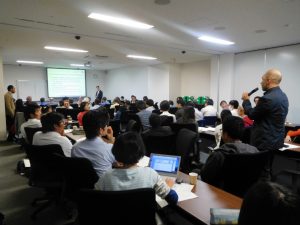
The theme of supporting peasant rights as a mechanism for achieving agricultural development was further underlined by Prof. van der Ploeg in his speech “Revisiting the Structure/Agency Debate and its Implications for Peasant Studies”. His surprising message was that peasants are not a remnant of the past but very much an active agent in innovating adaptive agricultural methods. He established this by highlighting three underappreciated trends: 1) despite policy disadvantages, small and medium farms did not disappear, but remained a foundation for food security; 2) large high-tech farms are increasingly vulnerable to a new era of market volatility; and 3) the political bias towards large farms is increasingly counterproductive.
The roundtable discussion moderated by Dr. Feuer with these three speakers gave the audience an opportunity to raise discussions about future policy, the challenging institutional environment for alternative agriculture, and the role of researchers.
Workshop Excursions
The last part of the workshop helped many of the concepts and theories discussed come alive in the field. On 26-27 of May, the workshop participants visited rural villages in Ayabe City of northern Kyoto prefecture, as well the nearby city of Kameoka to experience more urban, technological trends in agriculture. The first visit was the Satoyama Net (Kajiya-Cho) where the participants discovered the revitalisation approaches of a depopulated village. This was followed by a visit and lunch at the house of Mr. and Ms. Kaneda’s, a family of new entry farmers making a livelihood from organic farming, hunting and carpentry in Shigasato-Cho village. The last visit of the first day ended at a rural marginal village, Kambayashi Oitomi-Cho, which has suffered depopulation during the previous decades, but has started to recover through the activities of the local community. 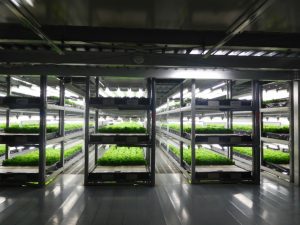
The second day of the workshop excursion included a visit to a high-tech indoor farming facility and JA’s large farmers’ market “Tawawa Asaragi”, both located in Kameoka city. Tawawa Asaragi is a unique place where customers around Kameoka can directly purchase fresh and high quality (but not necessarily organic) farm products. Despite the fact that prices are a bit higher compared to supermarkets, Tawawa Asaragi’s products are usually sold out before noon. The strong social relation between customers and farmers demonstrates that price is not the only element that matters in food, and that customers strongly desire alternative ways to access good quality food and support nearby farming systems. After a short visit of the shop (and shopping), the group headed to the indoor lettuce facility of SPREAD Co., Ltd. The participants were welcomed by the Chief Executive Officer Mr. Shinji Inada and the director of global strategies of the company. The tour started with a presentation of the company’s operations and the technology it uses in the production of lettuce in a controlled environment. The production process is fully automated. It uses less water compared to outdoor farming. and features efficient processes for recycling, filtering and maintaining sterility. While promising in some respects, the future role of such new technology in society has not been sufficiently debated. This is an important challenge for the AGST project and the researchers both at KU and WU, since this type of “agriculture” is sometimes called the “Dutch Model”. Similar advancements have long been promoted in the Netherlands and are now viewed as a potential model for Japan. In fact, this topic will be jointly researched by Prof. Hisano and Dr. Jongerden with help from a group of the students of KU and WU in the coming few years.
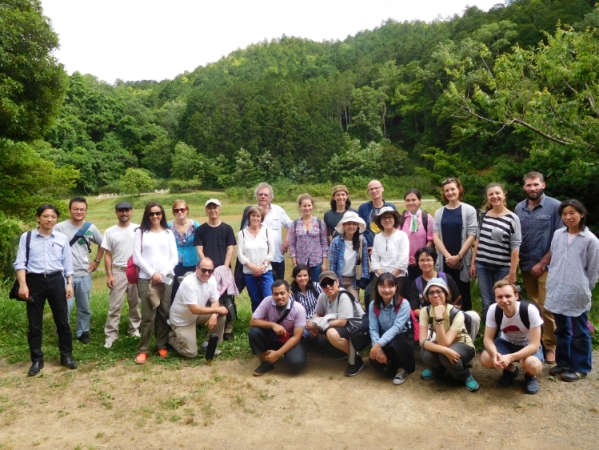
Bridging Japanese Scholars to the global network of researchers – through the symposium on “Global Land Grabbing and Regulatory Regime – a Look from Japan and Far East”
It goes without saying that the issue of land grabbing has sparked controversies in recent years. Notwithstanding the extensive research produced on this subject, the fact remains that Japanese scholars are lagging far behind international researchers. To improve this visibility and in order to fill this gap, Dr. Shuji Hisano, Professor of International Political Economy of Agriculture at the Graduate School of Economics of Kyoto University and leading professor in the Module 1 of the AGST, Environmental Policy and Rural Development Studies with the support of students and the International Affairs Office of the Graduate School of Economics – organized a symposium on the theme of “Global Land Grabbing and Regulatory Regime – a Look from Japan and Far east“. This initiative is deeply embedded in the aspiration of Kyoto University, through the AGST project to be a gateway that bridges Japan with the rest of the world and to nurture knowledges that Japan can provide to improve sustainable development.
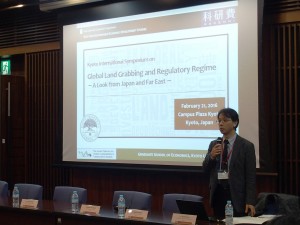
The symposium was held on February 21, 2016 at Campus Plaza Kyoto, an iconic place which emerged from the collaboration of a consortium of universities based in Kyoto and whose purpose is to promote human resources that can play a major role in the international community, while encouraging cooperation with local communities, government and industry as well as promoting regional development and revitalization. On the day, around 60 people, mainly from the academia, including professors and students from different disciplines, but also some from the civil society sector, gathered to listen and learn about a new sustainable regulatory framework on agriculture investments. The participants were all keen to see alternatives that would offer a space for investment policies that respect human rights and the environment in host countries at the first place. In addition to these two points, the promotion of good governance, the diffusion of best practices and more transparency from the investors and the countries there are hailing from were part of the main interests of the attendance.
The event marked the culmination of two projects funded by the Japan Society for the Promotion of Science (JSPS) namely Grants-in-Aid for Scientific Research: Project No. 25292139 – An International Comparative Study on Foreign Agricultural Investment and the Responsibility of Investing Countries under the Restructuring of Agrifood Regime, April 2013 – March 2016 (Project Leader: Shuji Hisano, Kyoto University) – and the Grants-in-Aid for Scientific Research: Project No. 26300014 – Political Economy Study on Food Security and Land Grabbing in Semi-arid Rural Africa, April 2014 – March 2017 (Project Leader: Tadasu Tsuruta, Kinki University). Professor Hisano’s project was divided into four modules: the first, a study of international organizations and civil societies. The second module focused on investing countries and transnational corporations. It covered studies on USA, Europe, Japan, South Korea and China. The third module was about the study of the host countries and the affected rural communities, these countries include: Mozambique, Tanzania, Indonesia, Malaysia, Chile, Madagascar, China and Far east Russia. The last module of the project is directly related to the symposium focusing on establishing a collaborative research network.
In his opening remarks, Professor Hisano reiterated his wish to reconnect Japanese scholars with international researchers in the context of a new food security era. He noted that the involvement of Japan in resource-seeking investments in agriculture has flown below the radar of international observers and the research conducted by scholars based in Japan is little known to the international public. Japan is however deeply taking part to massive investment in agriculture through its Official Development Assistance (ODA) and its private Banks in Africa, Southeast Asia, and South America amont others. Professor Hisano added that whether the outcome of such action is positive or negative, it is the role of the researchers to investigate. Nonetheless, the event was not only focusing on what is going on and how it can be improved, but also to make sure that researchers are getting things right in their academic inquiries.
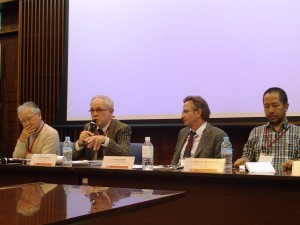
The programme was organized in two sessions. The first session was dedicated to prominent international scholars. The first guest who gave a keynote speech was Dr. Saturnino Jun Borras, activist and Professor of Critical Agrarian Studies at the International Institute of Social Studies (ISS) in The Hague, Netherlands and Editor-In-Chief of Journal of Peasant Studies. The ensuing presentation was followed by Dr. Andreas Neef, Professor and Director of the Development Studies programme at the University of Auckland, New Zealand. Professor Neef Specialized in Agricultural Economics and Rural Sociology and whose research focuses on participatory approaches, rural innovation processes, natural resource governance, land grabbing, climate change adaptation and post-disaster recovery. The last presenter, yet not the least, is Professor Coomans, Head of the Department of International and European law and the Coordinator of the Maastricht Centre for Human Rights at Maastricht University, the Netherlands.
Jun Borras gave a new perspective on how to approach the analysis in the first two waves (“making sense” period and “deepening our understanding” period) and, potentially third wave (“beyond” specific land deal and country case studies, into “interaction, intertwining, convergence, spill-over, entanglement, and interconnection”) of land grab research. For Professor Borras, ‘the Challenge for “engaged researchers” is to do [something] that matters in the real world, in the lives and livelihoods of marginalized groups and classes of society’.
Professor Borras underlined five elements that are at the central core of this interconnectivity namely: Spatial, Political-economic, Political ecological, Institutional and finally, Temporal. A consideration of these elements is therefore very much expected to guide the future framework of analysis for the next coming years.
Professor Andreas Neef shed light on the “role of national land policy frameworks in driving land grabs in Southeast Asia”. He advanced three main arguments in his presentation: 1) the state has been the major land grabber in Southeast Asia, 2) customary and communal rights in Southeast Asia are neither recognized nor prioritized by the state and 3) Statutory land laws in SE Asia are designed to enable corporate land grabs and make them lawful.
Professor Fons Coomans outlined different possible ways that could be applied to regulate corporate activities in land deals through the concept of “Extra-territorial Obligations” (ETOs). The main message emphasizes on the principle that the state cannot do in a third country things it can’t do at home. Thus, states and companies are bound and abide by the same rules as they were in their home countries. This legal framework is already an existing tool known as the Maastricht Principles on Extraterritorial Obligations of States in the area of Economic, Social and Cultural Rights made available to the public from the following link http://goo.gl/X112Wj.
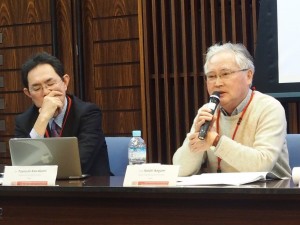
Two scholars from Japan presented their works in the second session. Professor Koichi Ikegami of Kinki University and former President of the Asian Rural Sociology Association and Dr. Toyoyuki Kawakami, activists and engaged researcher from Rainforest Action Network (RAN Japan), an international non-profit organization dedicated to the conservation of tropical forests. Both scholars presented their works on Japan’s involvement in investment in agriculture either through ODA or through Japanese financial institutions.
Professor Ikegami and his team examined the relations between the ProSAVANA Programme in the northern Mozambique and Agricultural Growth Corridor Development Projects and the way how Japan is involved in land grab. The project is jointly financed by Japan and Brazil to turn Mozambique fertile land into an export zone. Professor Ikegami pointed out in his presentation that lack of transparency, accountability and disclosure are the most obvious shortcomings of the ProSAVANA project. Also, there is an immense difference in terms of interpretation of what is considered as ‘idle or unused land’ which has been exploited by the project to evict small farmers from their properties. Additionally, the study reveals that the issue is not linked to productivity. It is noted that prior to the project, small framers recorded high productivity and were able to maintain a healthy living from their produce. They also managed to benefit from the activities which made it possible to send their children to school. This entire picture faded away when the project came in.
Dr. Toyoyuki Kawakami through his home institution conducted a research on 50 world major producers of palm oil, pulp and paper and tropical timber whose activities and operation impact natural tropical forests. Although data are still embargoed, the findings in the presentation of Dr. Toyoyuki demonstrated that Japanese Banks are deeply involved in damaging the environment. Millions of US$ have been so far invested by the Japanese companies in this sector of activities which are harming the life of poor people.
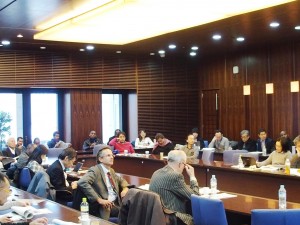
The presentations were followed by discussions chaired by Professor Hisano and Haja Rajaonarison. The questions were directly asked to the participants from the floor who presented different cases and scenarios part of their research or their own experiences/ case in their own countries. It was also a very good opportunity for graduate students to engage directly in discussions with leading professors whose names have been known so far in books and papers.
Professor Hiroshi ISODA from the faculty of agriculture of Kyushu university addressed his final remarks by thanking all the participants for their contributions. The symposium marks an important step in the relations between Japanese scholars and international researchers. A Japanese translation project of the book series of Agrarian Change and Peasant Studies, which is edited by Prof. Borras’s Initiatives in Critical Agrarian Studies (ICAS – www.iss.nl/icas), was one of the fruits of this exchange.
AGST Module 6 Asian Studies (Chinese Literature) Intensive Course
AGST Module 6 invited Professor Siao-chen Hu to give lectures titled “Topics in Chinese Narrative Literature of the Late Imperial Period” from August 3 to 6, 2015.
[Outline and Purpose of the Course]
Narratives are essential to our understanding of the Chinese literary past. By narrative I do not limit it to short stories and novels, but refer to a mode of composing texts. A narrative is an account of an event or a series of events, be it truthful or fictitious. Its functions are more than the telling of a story, as it tries to present ways of making sense of the events, and in extension, ways of seeing the world. By reading a narrative text, the reader takes an empathetic look at its author’s mind to conduct a dialogue with the author’s rhetoric and sociocultural community, and by doing it, the reader is able to tell a narrative of his own. Ideally, the result of reading is a fusion of horizons. In this course we will read selections of Chinese narrative texts of the late imperial period, centering around the concept of space, which is fundamental to the interpretation of Chinese literature yet has been inadequately addressed in previous studies.
[Lecturer]
Prof. Siao-chen Hu
Research Fellow & Director of the Institute of Chinese Literature and Philosophy
Academia Sinica
[Schedule]
(1) Aug 3, 10:30-12:00
(2) Aug 3, 13:00-14:30
(3) Aug 4, 10:30-12:00
(4) Aug 4, 13:00-14:30
(5) Aug 5, 10:30-12:00
(6) Aug 5, 13:00-14:30
(7) Aug 6, 10:30-12:00
(8) Aug 6, 13:00-14:30
[Venue]
Sogo-Kenkyu-kan 2, Enshu 10
[Lecture Title]
Topics in Chinese Narrative Literature of the Late Imperial Period
[Program]
I. Absence and Presence of the Cityscape
1. Hangzhou Narratives
2. “Old Capital” Complex
3. Lost Cities Shall Not Be Forgotten
II. Borderlands: The Site of Conflicting Values
4. Romance of Heroes and Heroines
5. Humble Words of a Rustic Old Man
6. History of the Myriad of Creatures
III. Zhi: Construction by Collection
7. Narrating the Far and Foreign
8. Narrating the Near and Home
[Concluding Comment]
Siao-chen Hu
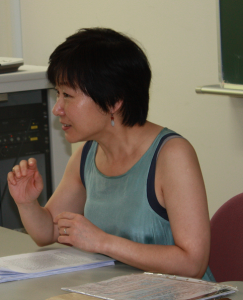
During the eight meetings the students and I tried to explore the ideas of space and place in narrative literature of China’s late imperial period. We read texts of different genres, including short stories, vernacular fictions, and verse narratives, to address questions of cityscapes, borderlands, and human sentiments. Limited by time, we did not have the opportunity to go into extensive discussion, but the students often raised inspiring and challenging questions that could lead to further study, thanks to the fact that they came from different research fields—literature, history, religion and art. In addition to discussion, the students also gave presentations about their own research topics. The presentations demonstrated their understanding of actual, historical, and metaphorical space, and provided examples from contemporary Shanghai and Taipei, historical Chang-an and Nanjing, as well as the performing space for religious activities as represented on the Dunhuang scrolls. I was very impressed that, with the participation of the students, we crossed the boundaries of historical periods (from classical to modern) and academic disciplines.
[Photo]
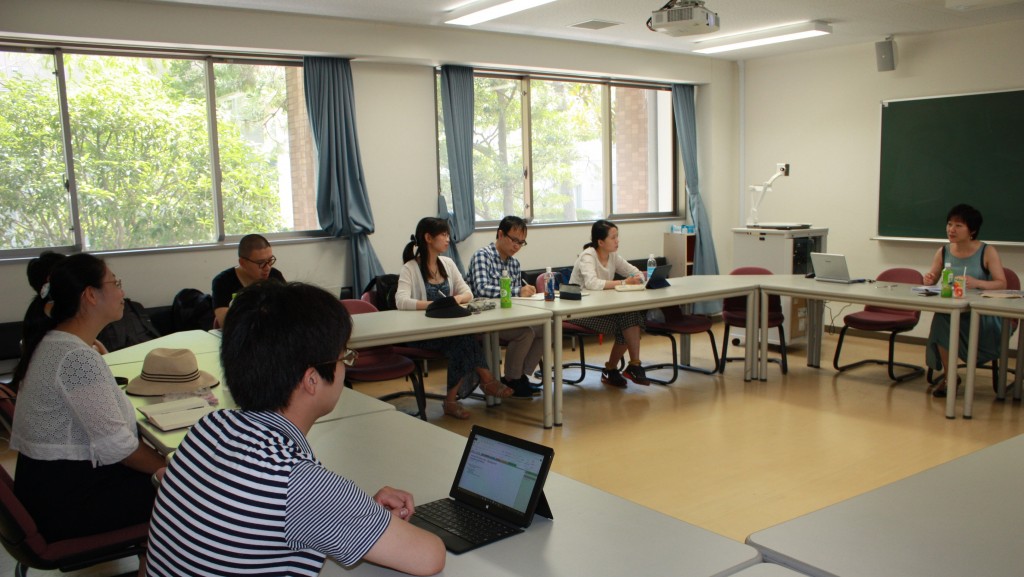
AGST Module 1 Special Lecture Series: Special Seminar (2015.07.30)
This seminar will be jointly organized by Division of Natural Resource Economics of GSA, JGP Social Sciences & Humanities Subunit, and Research Institute for Humanity and Nature (RIHN).
[Speaker]
Dr. Maki Hatanaka
Associate Professor, Department of Sociology,
Sam Houston State University, USA.
Dr. Jason Konefal
Associate Professor, Department of Sociology,
Sam Houston State University, USA.
[Date & Time]
Thurs. 30 July 2015
14:00-17:00
[Venue]
Room E217, Faculty of Agriculture Main Bldg.,
North Campus, Kyoto University
[More Detailed Inofrmation]
http://www.reseco.kais.kyoto-u.ac.jp/en/news/20150714_794/
[Contact]
Makoto Kuroda
Phone:075-753-6180
e-mail: kuroda.makoto.6a@kyoto-u.ac.jp
[Event Report] updated on 17 August, 2015
The special seminar attracted 16 participants from the Graduate School of Agriculture, the Graduate School of Economics, and the Research Institute for Humanity and Nature (RIHN). The guest speakers Dr. Hatanaka and Dr. Konefal both provided interesting and stimulating talks on the issue of governance for sustainable agriculture, which provoked lively discussion among the participants.
[Photo] updated on 17 August, 2015
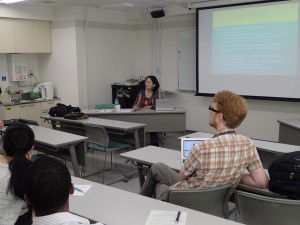
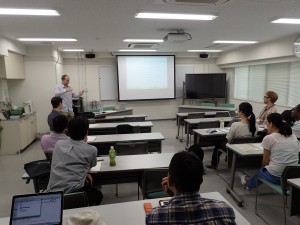
Meeting on Educational Collaboration and Future Partnership with Heidelberg University (2015.05.21)
AGST Module 6 visited to Heidelbelg University and held the meeting to explore possibilities the educational collaboration and future partnership between Kyoto University and Heidelberg University on May 21, 2015 at Heidelberg University.
[Attendee at the meeting]
Kyoto University
Yasuo Deguchi (Professor, Graduate School of Letters)
Emiko Ochiai (Professor, Graduate School of Letters)
Heidelberg University
Harald Fuess (Professor,Cluster of Excellence “Asia and Europe in a Global Context”)
Judit Arokay (Professor,Institute for Japanese)
[Photo]
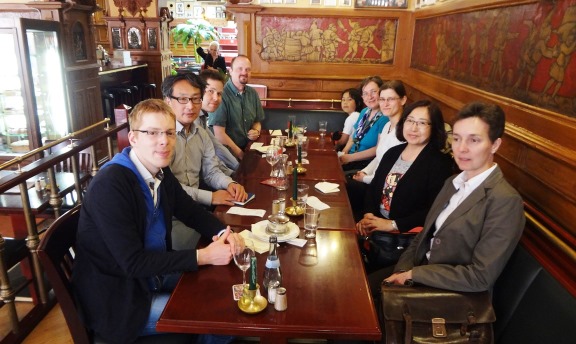
AGST Module 1 Special Lecture Series : “Political Economy of Biotechnology Development and Commons” (2015.05.27-06.19)
AGST Module 1 (Environmental policy & Rural development studies) will hold a series of special lectures titled “Political Economy of Biotechnology Development and Commons” from May 27 to June 19, 2015.
[Instructor]
Dr. Guido Ruivenkamp
Professor, Faculty of Rural Sociology,
Wageningen University & Research Centre (WUR)
Project Professor (JGP), Kyoto University
[Schedule]
(1) May 27, 09:00-12:00
(2) May 29, 09:00-12:00
(3) June 3, 09:00-12:00
(4) June 10, 09:00-12:00
(5) June 12, 09:00-12:00
(6) June 17, 09:00-12:00
(7) June 19, 09:00-12:00
[Venue]
(1), (3), (4), (6): Faculty of Law and Faculty of Economics East Bldg. 8F
(2), (5), (7): Faculty of Law and Faculty of Economics East Bldg. 1F
[Lecture Title]
Political Economy of Biotechnology Development and Commons
[Abstract]
The objective of the course is to stimulate students to apply a critical-reflexive and reconstructive approach in their own research by discussing the core concepts developed from within the practices of resistance and to show how these concepts are (can be) applied in the analysis of agro/food biotechnology development. The discussion of the core theoretical concepts for analyzing concrete practices of resisting and redesigning agro/food biotechnologies is given throughout this course. The course ends with the presentations of the students’ papers about the possibilities for a humanization of agro/food biotechnological development.
[Contact]
Ms. Yuko Imai, International Coordinator
International Affairs Office, Graduate School of Economics
Faculty of Law and Faculty of Economics East Bldg. 2F
E-mail: imai.yuuko.6v [at] kyoto-u.ac.jp (please replcae [at] with @)
TEL: 075-753-3476 (Ext. 83476)
——————————————————————
[Report] Updated on June 25
Within the context of the collaboration between Kyoto University and Wageningen University (WUR) of The Netherlands, professor Hisano (The Graduate School of Economics) invited professor Guido Ruivenkamp to give an intensive course.
The course “Political Economy of Biotechnology Development and Commons”, started on May 27th. During five weeks, seven interactive seminars/lectures were given, discussing many interesting subjects and scholars. The final lecture was given on June 19th and the course was concluded with an informal farewell tea meeting on the 24th of June.
Professor Hisano, who is also the director of the ‘International Graduate Programme for East Asia Sustainable Economic Development Studies’, has a long tradition of working together with professor Ruivenkamp. Their fruitful cooperation has shown to bundle the best expertise on the fields of political economy. As can be seen in their contribution towards the publication of Reconstructing Biotechnologies: Critical Social Analyses. It is the specialized knowledge and methodology of professor Ruivenkamp that gives extra insights to (PhD) students from Kyoto University, next to the expertise of professor Hisano.
The main objective of the course was to offer the participating students insight in the political-economic approach of doing a PhD research. This implies the application of a “critical-reconstructive” research methodology, i.e. analyzing critically the existing relations of power in the contemporary societal context and searching constructively for new opportunities within the existing reality to empower the potentialities of the powerless for their development.
In the sequence of lectures, sociological and philosophical thoughts and research were discussed with subjects as: immaterial labor, biopolitics, cognitive capitalism, life-science technologies, the multitude, commons and the common. During all the lectures different theoretical core concepts were discussed to illustrate the ways in which a critical-constructive research methodology can be applied in the actual biopolitical mode of production. The lectures discussed the many changes that have taken place in contemporary capitalism and particularly referred to technical innovations indicating that not only social relations are changing but that these changes also require a new way of doing PhD research. Indeed professor Ruivenkamp did not only present new concepts but also aimed to support the students in the adaption of this literature and political economic research methodology. This made the lectures very interdisciplinary and interactive.
The students have learnt a lot of the enormous expertise of professor Ruivenkamp. One PhD student, participating in the class, already went to the WUR for a course of the department in which professor Ruivenkamp works. He demonstrated his knowledge about ‘place-based’ developments on the board in front of the class, illustrating the relevancy for the cooperation between the Rural Sociology Department of the Wageningen University and the Graduate School of Economics of Kyoto University.
[Photos] Updated on June 25
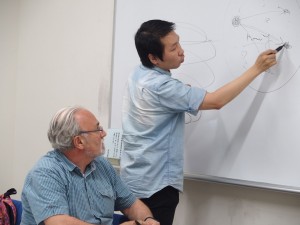
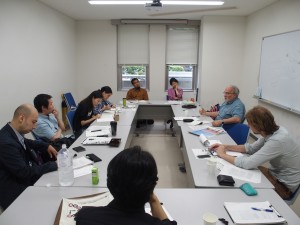
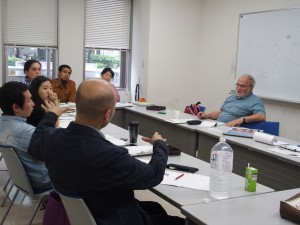
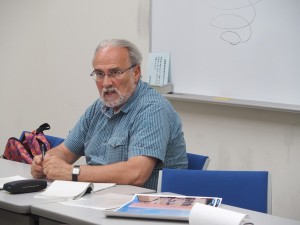
AGST Module 1 Special Lecture Series: “Understanding the Diversity of Local Food” (2015.05.28)
AGST Module 1 (Environmental policy & Rural development studies) will hold a special seminar titled “Understanding the Diversity of Local Food: How National Cuisine Evolves in Everyday Cambodian Restaurants” on May 28, 2015.
[Speaker]
Dr. Hart N. Feuer
Assistant Professor (JGP), Kyoto University
[Time & Date]
Time: 16:30-18:00
Date: Thursday 28 May 2015
[Venue]
Room E217, Faculty of Agriculture Main Bldg.,
North Campus, Kyoto University
[Abstract]
The owners of pre-prepared food restaurants (or soup-pot restaurants) in Cambodia and many other Asian countries make their decisions about what to cook in a complex manner, factoring in their culinary skill, seasonality of ingredients, and diners’ expectations for variety. As such, soup-pot restaurants exist as brokers between the diverse range of rural food customs and the prevailing expectations of city dwellers. In urban areas, everyday restaurants such as these are a window into seasonality and market cycles of food, as well as an opportunity to encounter culinary diversity and participate in the formulation ‘national cuisine’. Typically, soup- pot restaurants can accomplish this while also serving as a space of dietary learning, providing meals that are culturally understood to be balanced and nutritious, and garnering support for local cuisine from across the socio-economic spectrum. Indirectly, these restaurants can be seen as potential innovators for managing the consequences of industrialization on food and agriculture, facilitating democratic daily practices of food sovereignty.
[Event Report] Updated on 24 June
The special seminar by Dr. Hart N. Feuer, Project Specific Assistant Professor (JGP), attracted 29 participants, mostly faculty members and graduate students from the division of natural resource economics in the graduate school of agriculture. Dr. Feuer’s 45-minute presentation, entitled “Understanding the Diversity of Local Food: How National Cuisine Evolves in Everyday Cambodian Restaurants,” was very informative and interesting. It was followed by a lively 45-minute question and answer session in which PhD students from Southeast Asian Countries such as Thailand and Indonesia, in particular, actively participated.



